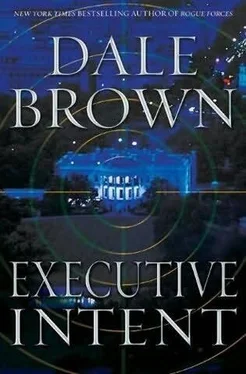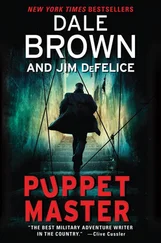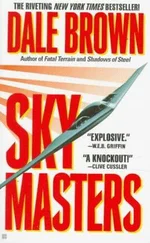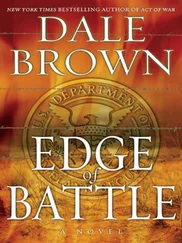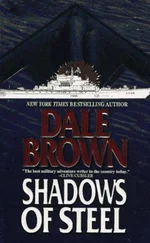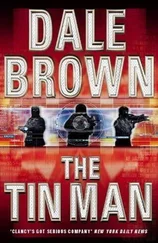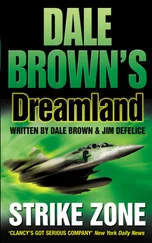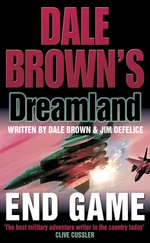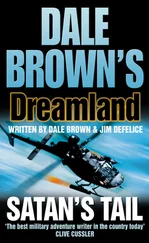“Thank you, Mr. Chairman,” Marcus Colby said. Colby was a successful and well-respected attorney, senior partner of a political consulting group, and professor of international affairs. Although not a part of President Joseph Gardner’s true inner circle, the tall, gray-haired, and scholarly-looking gentleman was known to have full access to the president and therefore carried considerable power to the Security Council chamber. “Ladies and gentlemen of the Security Council, thank you all for agreeing to this emergency session. I know the hour is early, but a grave situation has arisen that requires our attention.
“The matter of the People’s Republic of China’s invasion of Somalia has already been discussed by the council, and although no consensus had been reached by this body, it was generally accepted that China had been sufficiently provoked by freighter crewmembers being executed by Somali pirates into taking direct military action against the pirates’ bases of operation in and around Mogadishu. However, last night’s air attacks in and around the harbor at Aden in Yemen is a clear violation of a nation’s sovereignty and is a serious act of aggression. The United States demands that-”
“I object, Mr. Chairman!” Ambassador Li Jianzhu, the delegate from the People’s Republic of China, interrupted. “The attacks in Aden earlier were purely and simply defensive in nature. Our entire task force, which had been granted permission to anchor in Yemeni waters and use Aden ’s harbor, port, and shore facilities, was in danger by Islamist insurgents, obviously in retaliation for our punitive actions in Somalia. The vessel that attacked and severely damaged our destroyer and killed a dozen sailors was part of the Republic of Yemen ’s marine patrol police, which is headed by the navy. That means the conspiracy to attack Chinese warships had to have been made by Yemen ’s defense forces. That is why defense sites were attacked by our naval air forces.”
“They were indeed attacked, Mr. Ambassador-attacked within mere minutes of the attack on your warship,” Colby said.
“That is certainly suspicious. Why did you have so many planes so heavily loaded with munitions obviously carefully selected for a specific set of targets?”
“I do not know, Mr. Colby,” Li responded. “The Ministry of National Defense is occupied with rescue-and-recovery operations for its heavily damaged warship. I do know that the Zhenyuan was dispatched to the region to escort the Somali task force back home to China and to participate in exercises with the Russian navy; I also know that the carrier conducts many drills in preparation for diverse combat operations. And since the group was sailing into a known hostile area-”
“Indeed-a hostile area created by China!” Colby interjected.
“-I am sure they had an array of aircraft standing by on ready alert to respond to a wide array of threats,” Li went on, ignoring the outburst. He turned to the council chairman. “Why is China being portrayed as the aggressor here, Mr. Chairman? Why is China under such examination?”
“The reason is obvious, Mr. Ambassador-Chinese forces suddenly and without warning attacked the Republic of Yemen in an undeclared act of aggression,” Nascimento said. “The question before this council is whether your actions constituted a reasonable response to an apparent act of aggression against your forces, and was the act of aggression orchestrated by extremists or by the Yemeni government, against whom Chinese forces acted.”
“ China has a right to protect itself at all times,” the Chinese ambassador said loudly. “I hear no one asserting or defending this plain and simple fact!”
“That is not in question here,” Nascimento said.
“ China refuses to prattle about cause and effect while Chinese sailors are still submerged and trapped in the wreckage of a severely damaged warship, as if we were philosophically discussing the nature of genocide in the midst of a bloodbath,” the Chinese ambassador said angrily. “There are a dozen dead crewmembers still on the deck of the Wuxi. The outrage belongs with China, not the United States. This emergency meeting is useless and a complete waste of time. No one here has offered China any assistance in rescuing its sailors or investigating those responsible for attacking our warship.”
“Why should we risk putting rescue workers or investigators on the ground while Chinese warplanes are bombarding Aden?” Colby asked.
“Perhaps that is what we should be discussing: the withdrawal of Chinese forces from the region,” the ambassador from the Russian Federation, Boris Tarzov, a reserved and gentle-voiced young diplomat, suggested.
“Withdrawal?” Ambassador Li asked incredulously. “You mean, take our stricken vessel and our dead and just sail away? If China withdraws, the perpetrators will withdraw as well, and the dead will curse us for our lack of resolve. That is unacceptable.”
“And having Chinese warplanes still attacking the city of Aden and buzzing over commercial and military ships in the Gulf of Aden is also not acceptable,” Ambassador Colby said. “The United States wants to know who hit the hornet’s nest with a stick, sir, but we will not sit idly by while the hornets continue to swarm around the place and sting everyone in sight.”
“I shall be sure to let the families of our dead know of your clever analogy, Mr. Colby,” Ambassador Li said acidly. “And then I will assure them, as I do you now, that China will not leave until the perpetrators of this dastardly act are brought to justice…Chinese justice.”
“How very convenient: Chinese naval forces on both the north and south sides of the Gulf of Aden,” Colby observed, “all because of supposed extremist Islamist attacks on its people and ships? If I didn’t know better, Mr. Ambassador, I would say that China is inventing crises to support an imperialistic agenda in that region of the world, a vital choke point to sea traffic for the rest of the world. China has built itself a blue-water navy along with its one-hundred-million-man army, and now it intends to deploy that force wherever it pleases.”
“The United States certainly knows a thing or two about imperialism, instigating violence and death, and inserting military forces in critical areas with the objective of controlling them and closing them off to any power it sees as a threat to its own national interests,” Li said. “Do not seek to lecture the People’s Republic of China about secret agendas and military domination-one needs to do nothing but go outside on a clear night and watch your big bright space station fly overhead to understand that the United States wants nothing more than absolute world control.”
“This argument is getting us nowhere, gentlemen,” Ambassador Tarzov said, his voice calm but his tone surprisingly insistent. “The matter before us is simple: We need to ensure the safety and security of the Chinese navy while they are doing rescue-and-recovery efforts, and we need to launch an investigation as to who did this monstrous deed: Was it Islamist vengeance for attacks in Somalia, as it appears, or was it some other sort of attack?”
“And China needs to ground all those warplanes before any more innocent men, women, and children are killed!” Colby interjected.
“And leave our sailors and rescue workers exposed to yet more attacks?” Li retorted. “Whom can China trust? The Yemeni army? Has the Yemeni navy and harbor police been infiltrated by jihadists? China demands that some sort of international security force be brought in to keep our sailors safe while we continue rescue-and-recovery activities. Otherwise, our armed patrols will continue.”
“That is not acceptable!” Colby insisted. “ China cannot continue attacks over Aden. It is one of the most valuable and strategic ports in the entire Middle East. Insurance rates for ships transiting the area, which is almost one-fourth of all vessels on the high seas, are skyrocketing, as are oil prices. The air raids are terrifying the local residents and are fueling angry protests.”
Читать дальше
